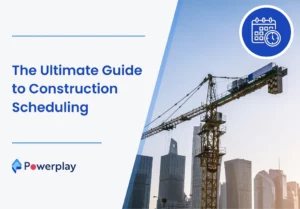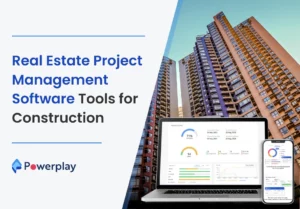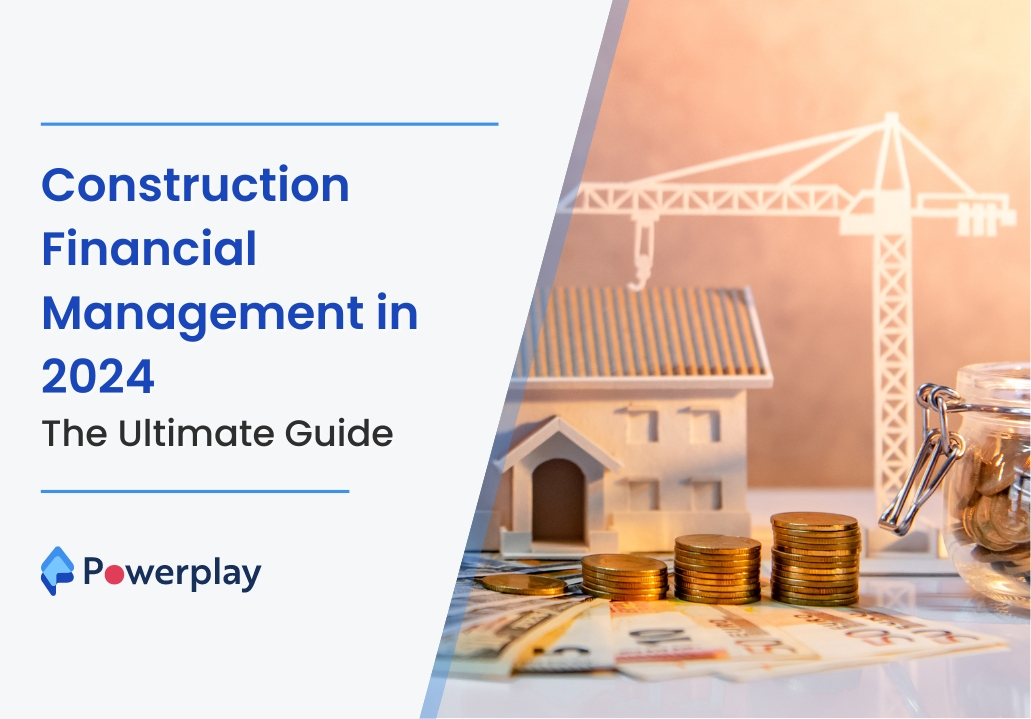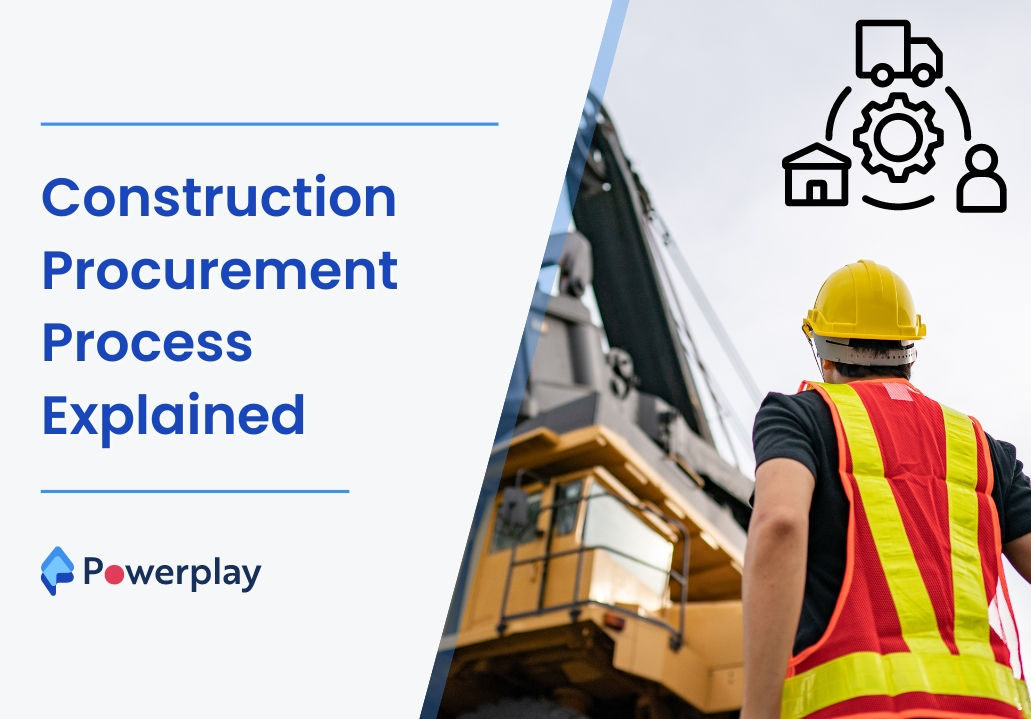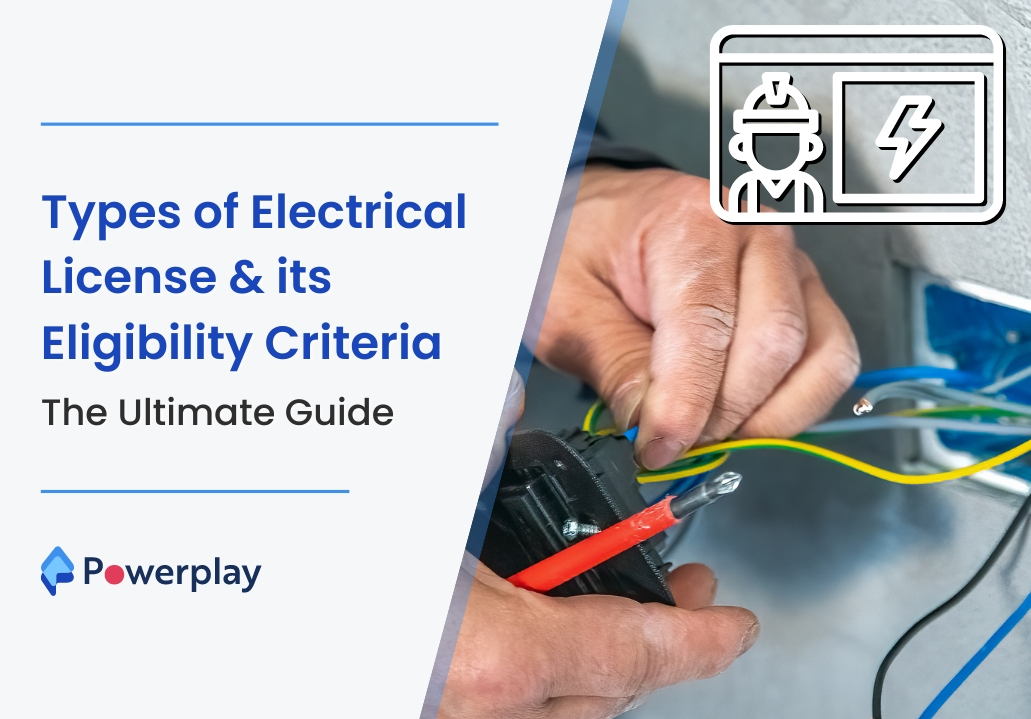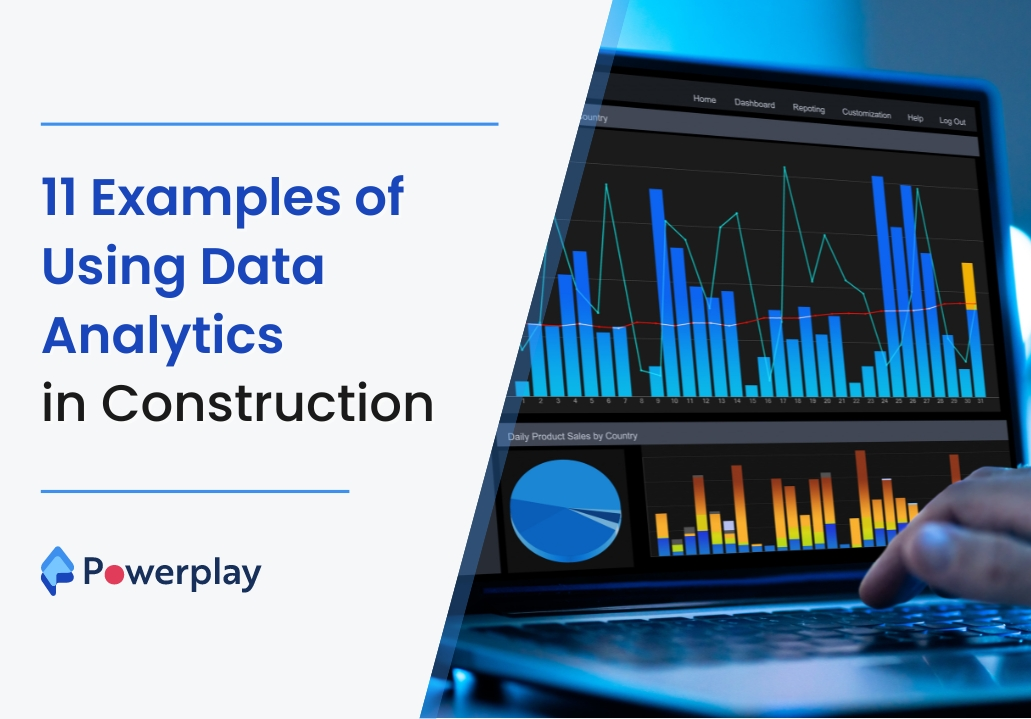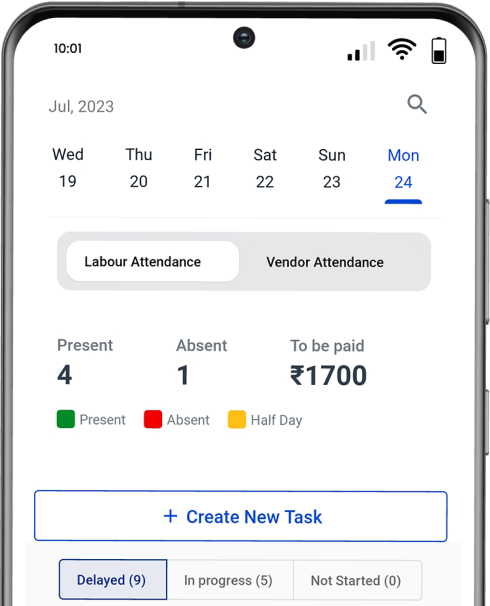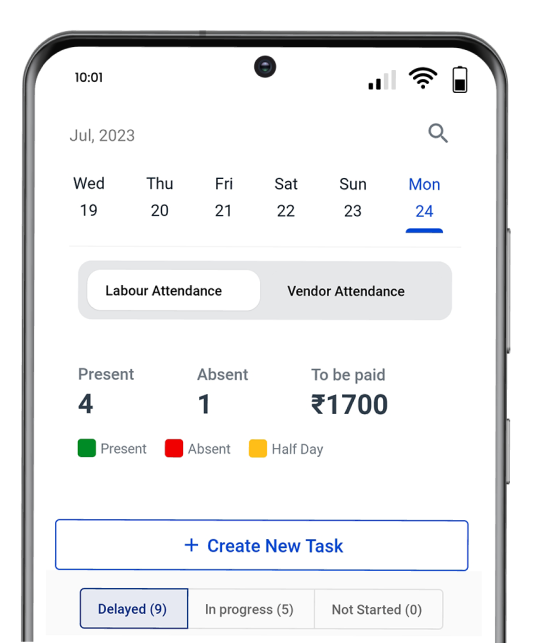What is EPC Contract?
-
Kumar Abhishek Anand
- October 12, 2023
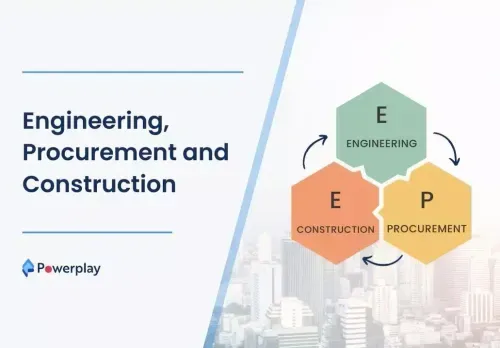
Table of Contents
ToggleEngineering Procurement and Construction
Generally in a construction project, a client who has an idea about constructing a structure hires an architect and a set of professionals to put the idea on paper through drawings, planning, design, etc, after which the client puts out an invitation to tender to get offers for completing the project from prospective contractors. The contractor then hires a set of subcontractors and other construction professionals who can accomplish certain aspects of the construction project in sequence or simultaneously and a project manager directs and coordinates them together in order to complete the project.

Not long ago, maybe since a decade or two, a completely new type of contract that has been developed to transfer all the responsibilities of a construction project to a single individual, known as Engineering, procurement, and construction(EPC) has been trending. In this particular contract, the EPC contractor is solely responsible for the entire construction project right from the design of the structure, procurement of materials and certain equipment, construction of the complete structure, commissioning and the final handover of the project to the client, at an end to end agreement.
The essential points that need to be included in a good EPC contract can be:
- Comprehensive and transparent that should clearly specify all clauses and definitions in detail along with consistency in the contract structure
- Transparency in the project’s objectives and goals
- Legally effective as in it should be challengeable in the court of justice in case of any discrepancy
- The risk involved in the project should be borne by the party who is potentially capable of bearing the risks
- It should be in proper line with the terms that have been agreed upon by both parties
- It should cover all the objectives and offset goals.
- The contract should have provisions for change in some extreme conditions or should be flexible along its term to adapt to requirements
- The points in the contracts should have been checked, agreed to, and without doubt
- The banking terms, payment methods, and insurance criteria should be distinct to all parties
- The contract should be easily comprehended in its language
Principles for preparation of an EPC contract
An EPC contract is prepared by a set of fundamental principles mentioned below:
- The contract should be prepared according to the type of work being undertaken
- The scope and objectives of the project contract should not be filled with doubt
- The scope of the contract should be prepared with utmost care and sincerity, that must include all the requirements and schedules of all activities that have to be performed by respective parties
- The scope prepared should be able to communicate the partwise responsibilities of all parties involved in the project to avoid overlapping
- The scope should not be too complex in its nature.

Scope of the Project
Scope of the project in the contract should be crystal clear and to the point in describing its purpose including the following points:
- Scope of design, architecture, and technology
- Scope of supplies or resources that include materials, tools, equipment, civil spares, etc
- Scope of services, transportation, finance, insurance, liabilities, training, testing, erection, clearance, customs, demolition, etc
- Another scope of things specific to the particular project.
In EPC contracts just like the normal construction contracts, the solely responsible contractor can subcontract other parties for the smooth execution of the project and indirect sharing of the risks related to the project.
Change Orders
EPC contracts are generally drafted for larger than average projects due to their flexible functions and methods. This flexibility feature is displayed by the provision provided for a change in orders at any time of the project duration due to unwanted but adjustable circumstances. These changes in orders are essential due to the following reasons:
- To remove doubt if any in the scope of the contract in any section.
- Any change in technology that has become important to the project process
- To inculcate any late suggestions or requirements relating to the project
- Additional requests from the employer in case of any development during the project
- For unpredictable circumstances that may have come up during the project and may not have been discussed at the time of awarding the project to the contractor. The scope of the contract has pre-decided terms related to change orders according to which the client has the right to issue a change order only on the condition that the change order is part of the project or complementary to the project or mutually agreed upon by both the parties. In case the parties do not agree upon the revised budget and time as per the change order, then either the client can instruct the contractor to carry forward with the terms of the change order or refer the matter for dispute resolution. In case both of them agree upon the terms of service of the change order, the agreement must be done in writing, as an oral agreement cannot be enforced by law. The change order can be considered to be a miniature contract with its own scope, budget, specifications, schedule, price, etc.
Price Schedule
The price schedule has to be drafted in the EPC contract for all the components to be supplied under the contract and in detail. Some of these components can be:
- Local and imported resources relating to structures, steel, fabrication, etc, all of which form the scope of the project.
- Civil construction supplies
- Transportation and sea freight supplies.
- Custom clearance
- Storage, handling, building, commissioning, and performance assurance
- Design and technology
- All other components that have been mentioned in the contract
These prices should be included along with the taxes and duties essentially and provision for change in prices should also be included due to price variation.
Timeline
Time is one of the most essential components of an EPC contract, thus all provisions related to time schedule is of utmost importance including:
- Time should form the base of the contract
- Suitable penalties should be levied in an event of time schedule violation mentioned in the contract.
- Time extension arrangements must be there in project provisions along with liquidated damages being imposed upon the contractors responsible for the delay
Contract Schedule
The contractor schedule is used in order to plan, schedule, monitor, and control activities that help the company in managing resources properly. Early planning actions must be initiated along with the acceleration of delayed projects. On the whole, a contract schedule is of several types, some of which have been mentioned below and are necessary to track the progress of the project and the activities.
- L1 Schedule- Also known as Project Schedule(PM) and is used to highlight only the major task schedules, milestones, and objectives.
- L2 Schedule- Summary Master Schedule(SMS)
- L3 Schedule- Critical Path Method(CPM)
- L4 Schedule- Commonly known as project working schedule
- L5 Schedule- Short timespan schedule for common areas having detailed and coordinated activities.
Payment Terms and Conditions
The terms of payment in an EPC contract can be terms related to upfront payments, progress payments, and stage or task payments of the project. It should be drafted as part of the contract as provisions that set out the time and amount of money that has to be paid to the contractor on completion of a specific task or stage. There can be provisions for payments regulation that need to be abided by along with the levied taxes. There should be clear provisions for retention money that is held by the client as security against any kind of default by the contractor and price variations that are only applicable from a specified date as per the formula given in the contract. The various scheduled payments can be advance payments, progress payments, stage payments, pre-authorized checking(PAC) payment, performance payment, commissioning payment, foreign payments, final payments, etc.
Time Extensions
There can be many circumstances due to which the time needs to be extended in order to complete the project. Some of those circumstances can be:
- Alterations in the scope of the project
- Due to unforeseeable circumstances
- Suspension of project activities for a timespan by the employer
- Change of provisions related to time delay
- Default by the employer
- Time extensions as taken by the contractor as per the provisions mentioned in the contract
- Any circumstance that was not taken into account at the time of awarding of the contract.
Contract Interpretation and Priority
The interpretation of the contract should be followed as per a standard set priority for the documents included in an EPC contract which have been sequentially mentioned below. For a particular issue if there is any disagreement between the provisions of the General Conditions of Contract(GCC) and Special Conditions of Contract(SCC), the provisions mentioned in the SCC have to be abided by.
- Contract Agreement with appendices
- Special Conditions of the contract with appendices
- General Conditions of the contract with appendices
- Technical specifications
- Other general conditions
- Safety code for contractors
- Other included documents
Management of Risks
The risks related to a project can be in specific areas such as the scope of the project, estimated and other costs involved, schedule, resources, etc. It is important to plan in advance in accordance with the type of risk being taken into consideration in order to manage or mitigate the risk associated with the specific areas. Sequential steps that must be followed in order to analyze and manage risks can be identifying the risks at first, assessing their impact, communicating the risks to the respective individuals, and directing them to take early actions. The contract can have provisions for shifting them, securing against the prospective losses caused by them, etc.
Some common steps that can be followed to manage risks are:
- The contractors appoint subcontractors for specific tasks and act in groups while performing and managing risks. Therefore the responsibility lies with the contractor for the task done by them and for any issues there should not be a joint liability.
- The quality and quantity of supplies required on or before schedule should be mentioned in the EPC contract as a shortage of these supplies can severely impact the cost and time of a construction project.
- The employer must monitor the activities on a regular basis and should warn the contractor as early as possible or initiate warning methods. All-time overruns have to be accounted for with liquidated damages by the contractor to the employer as mentioned in the contract. In case the delay is due to the client or due to any unforeseen circumstances, the resulting cost overruns are accepted by the clients.
- In case of non-compliance with performance or material standards and technical specifications, the brunt has to be borne by the respective contractor.
- The provisions for unforeseeable circumstances should be duly mentioned in the EPC contract to inspect and analyze the situation and conclusively decide the performing obligations of all parties, the party responsible for the assessment of damages, the party who has to find a viable solution, etc.
- In the case of international EPC contracts, risks related to amended laws and regulations or judicial and administrative interpretation are considered to be outside the control of the contractor and thus have to be dealt with by the client himself.
- Logical clauses should be incorporated in the EPC contract to manage the risks in an equitable manner among all the stakeholders and should be allocated to the parties who are capable of managing them.
An EPC contract has numerous other components included in it that make it unique in itself. Some other components have been mentioned below but are not limited to these only:
- Severability- There are certain clauses in an EPC contract that allow severability, i.e., due to any circumstance if any of the provisions mentioned in the contract is rendered invalid or prohibited then that provision shall not affect the enforceability of other provisions.
- Client’s Responsibilities- The client should hand over the legal and physical possession of the site to the contractor and help him in obtaining the government licenses and statutory clearances as required by the project. The client should also ensure timely payments as specified in the contract.
- Securities- Securities provided can be of three types generally, the first one being performance bank guarantee for the specified amount up to the defect liability period. The second one is a bank guarantee towards commissioning for a particular amount up to the date of commissioning of the project. The third one is a bank guarantee towards the final submission of the project for a specified amount.
EPC contracts require diligent effort that needs to be put in in order to manage all aspects. The use of management tools in the form of software can assist in the effective management of an EPC project. Powerplay is a very efficient construction project management tool that can be used to manage an EPC contract project for a contractor from scratch.
Share
Kumar is a digital content professional with more than 2 years of experience in Blog writing, copywriting and scripting. His passion lies in the art of creating convincing content that plays a major role in converting leads for SAAS businesses.
